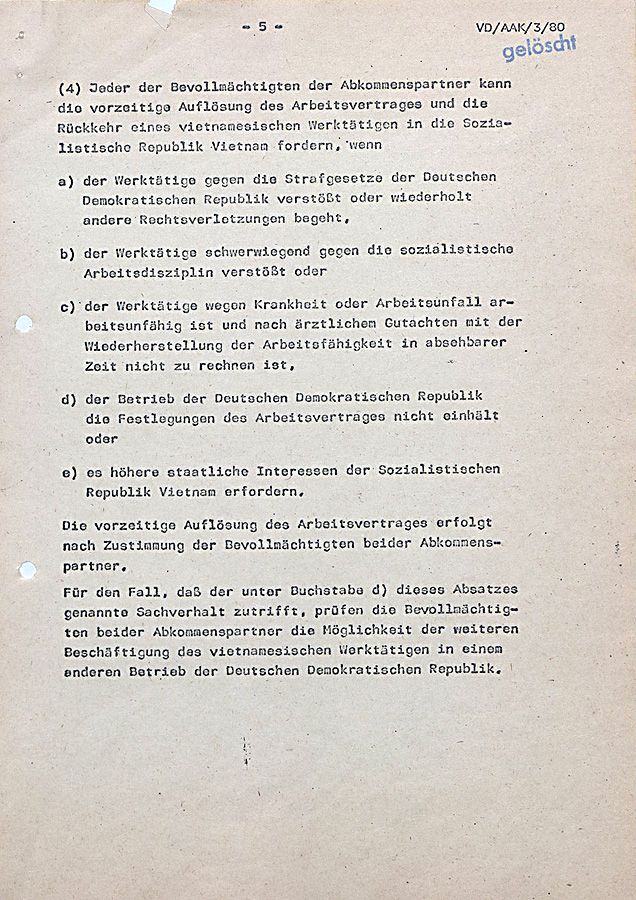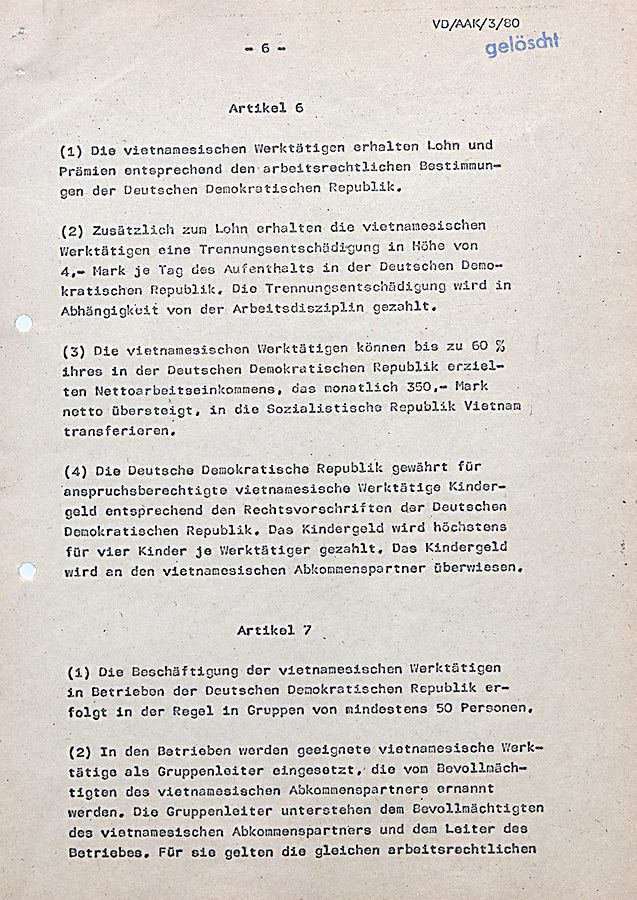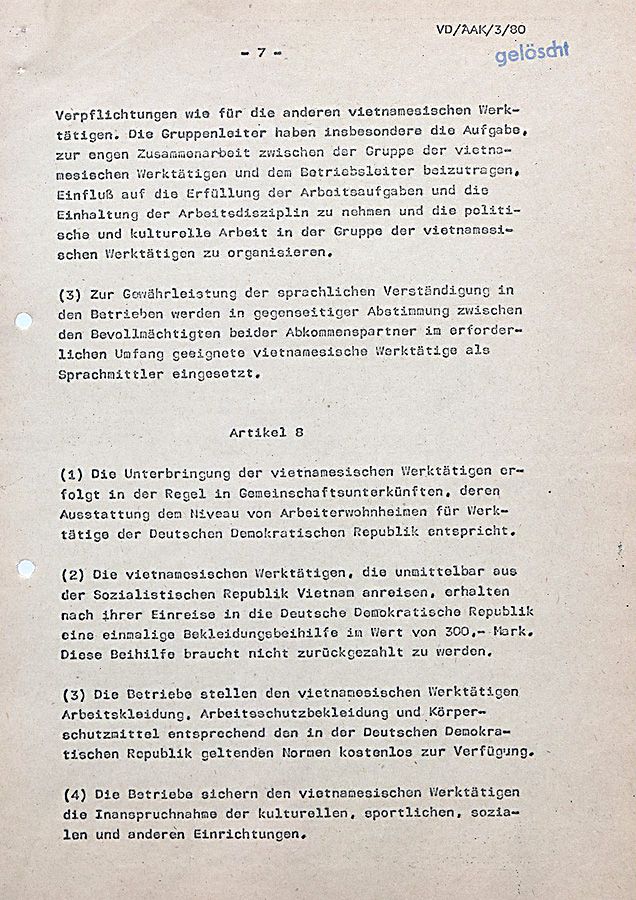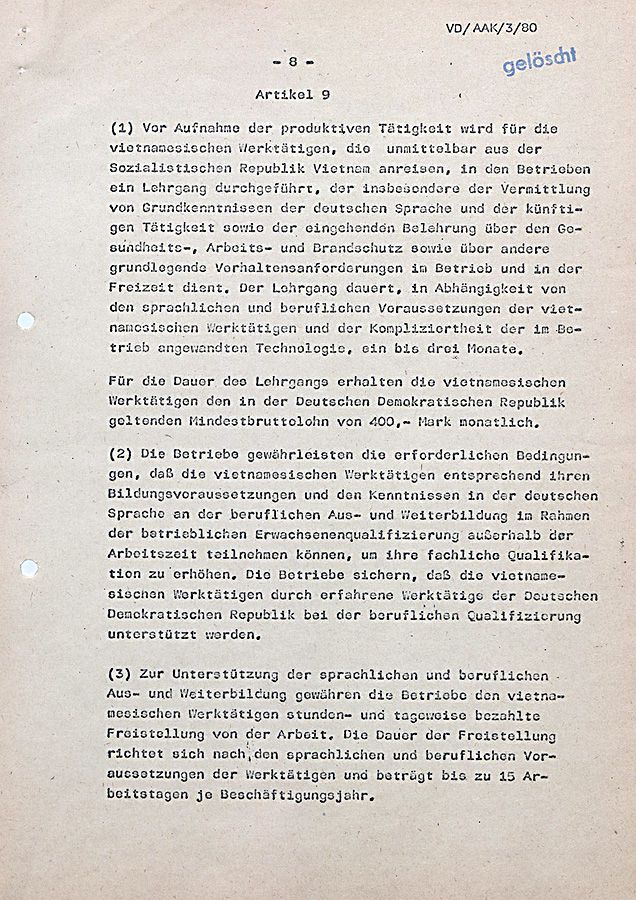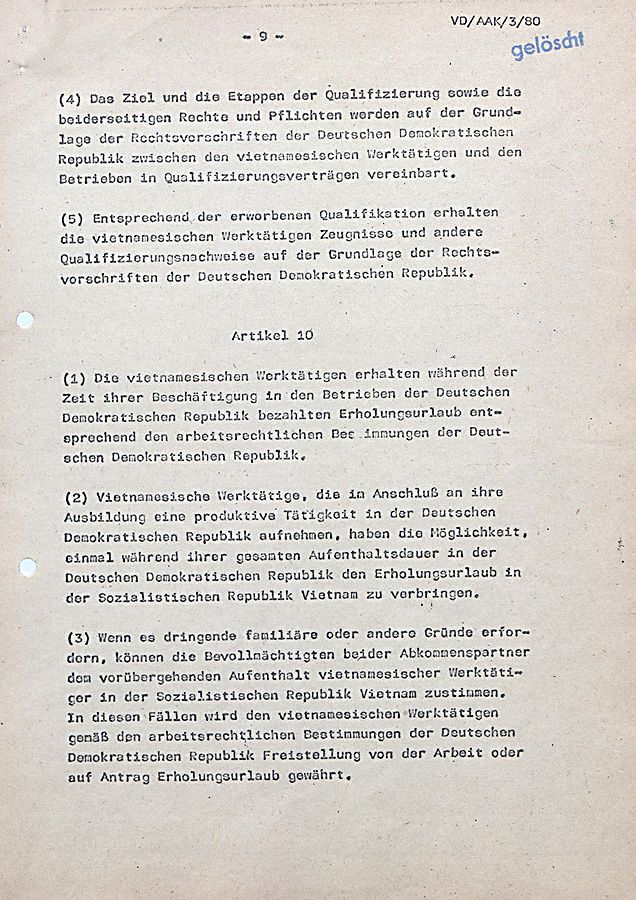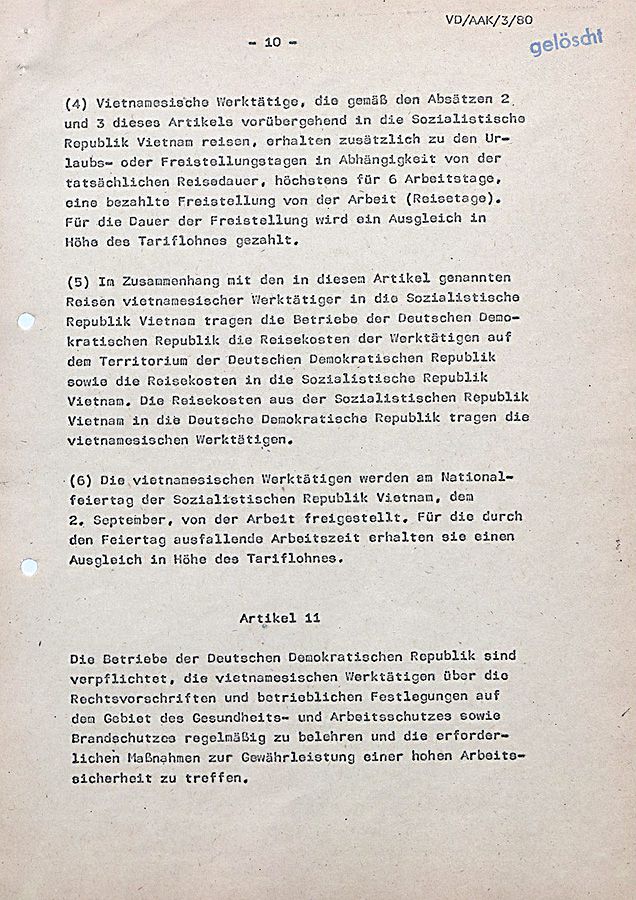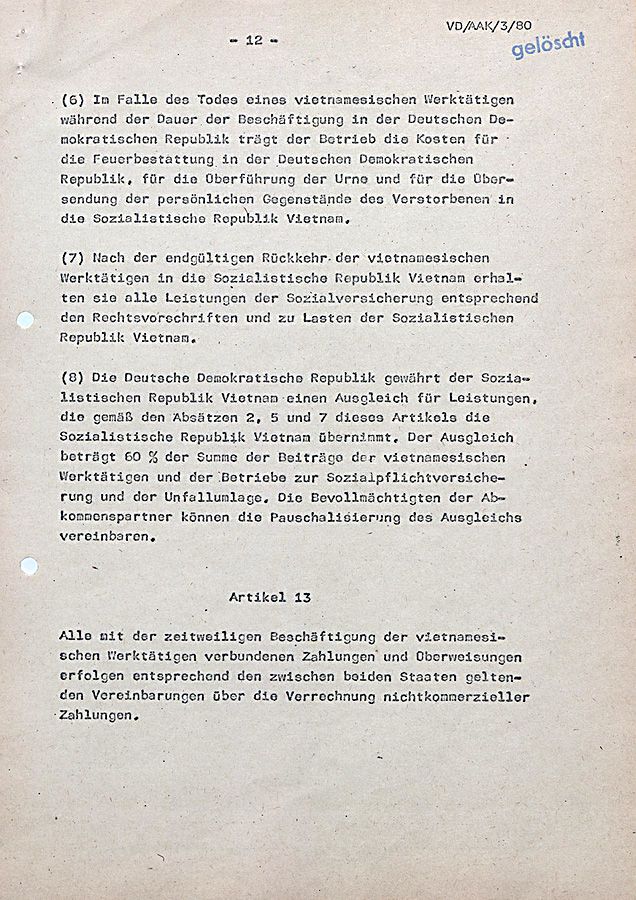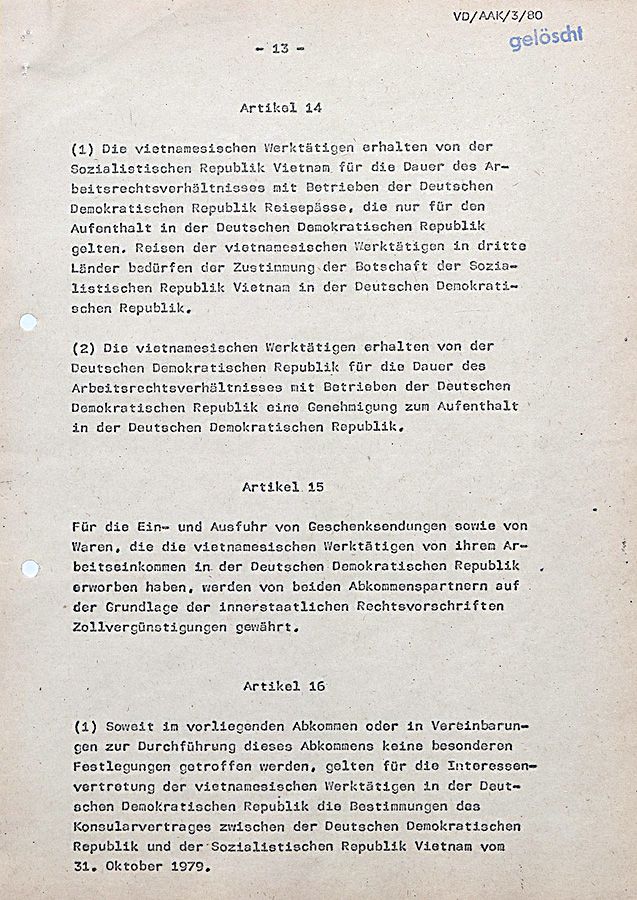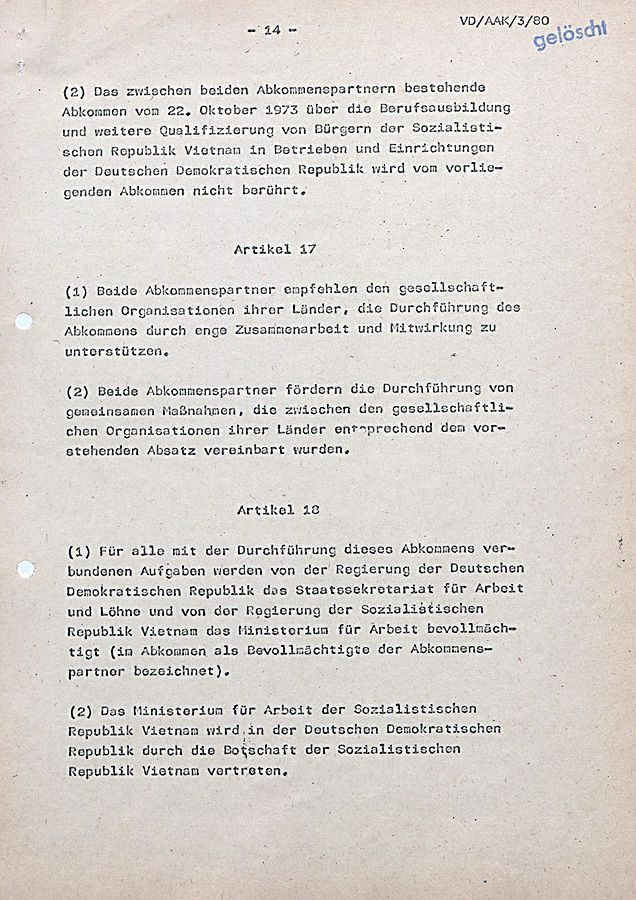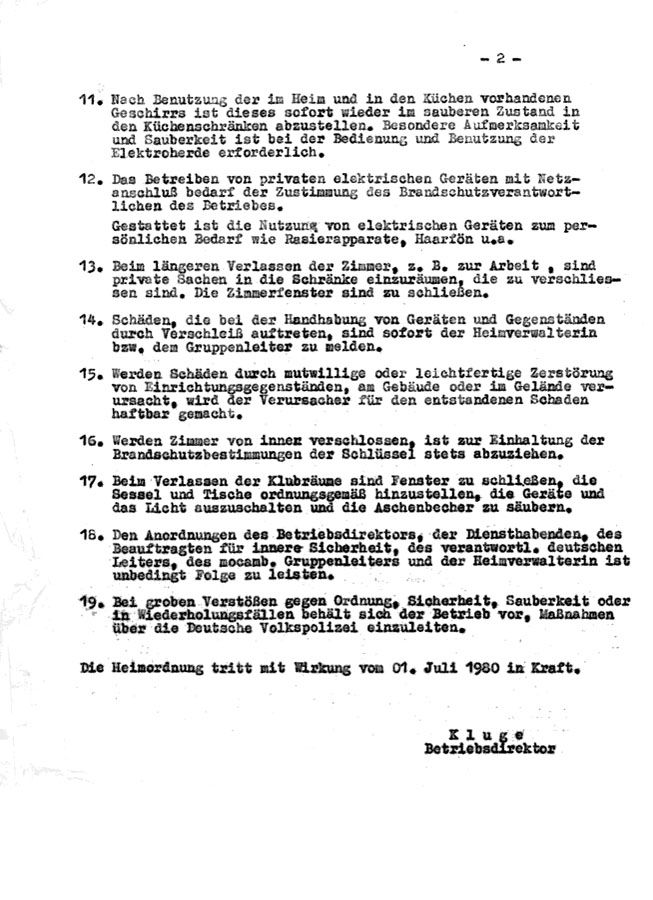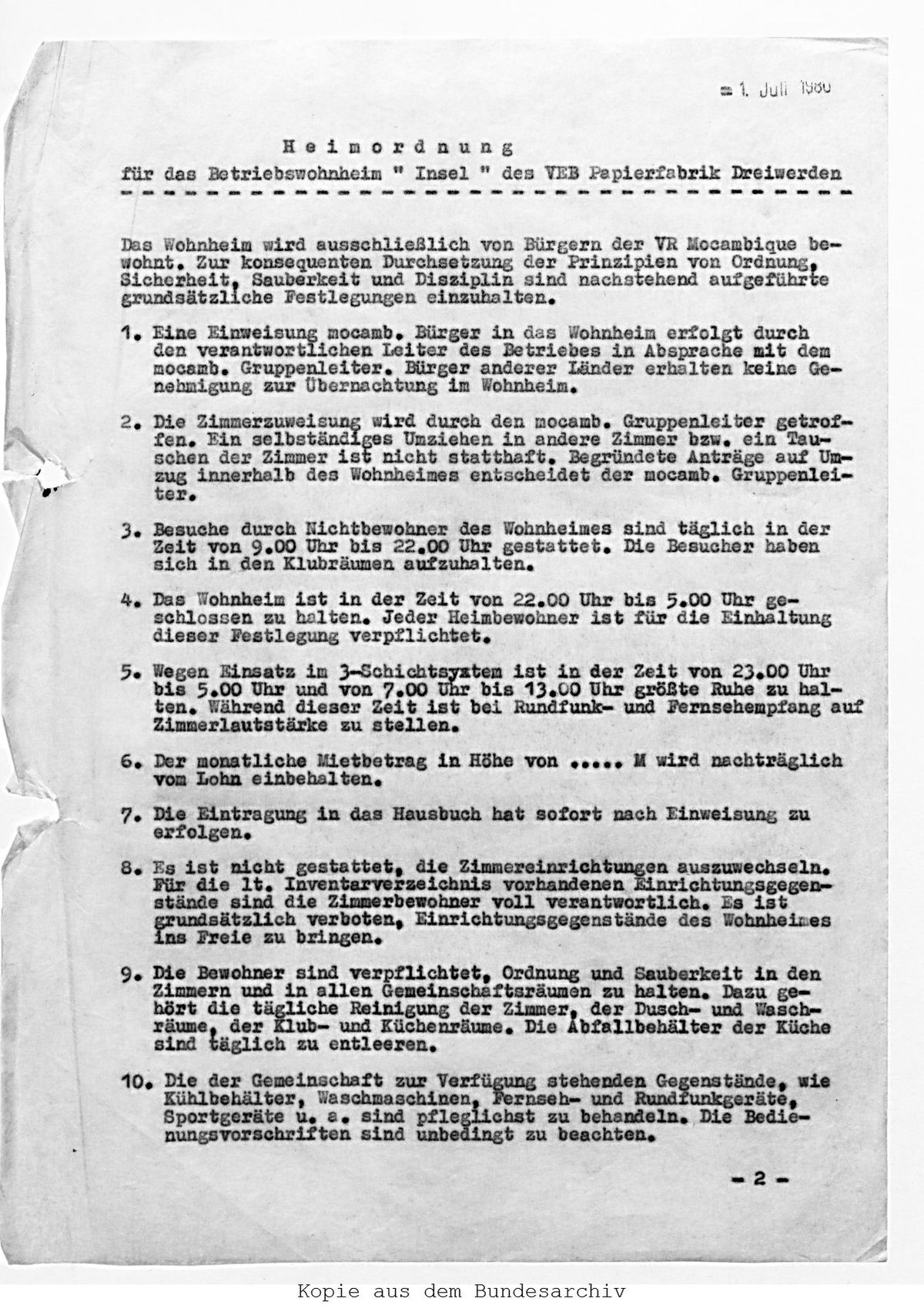Treaties and Interests
1. Development of bilateral intergovernmental agreements
2. Agreement between the GDR government and the government of the People’s Republic of Mozambique on the temporary employment of Mozambican contract workers in the socialist companies of the GDR, 1979
3. Agreement between the GDR government and the government of the People’s Republic of Vietnam on the temporary employment and training of Vietnamese contract workers in companies in the GDR, 1980
4. List of objects that Vietnamese contract workers could export duty-free, 1989
5. House rules
1. Bilateral intergovernmental agreements
Since the beginning of the 1960s, the GDR government had attempted to resolve labour shortages in the country by recruiting foreign workers (1) The first treaty signed in 1963 regarded the qualification of young Polish workers. A more comprehensive agreement was entered into between Hungary and the GDR in 1967. This agreement specified that workers were entitled to social benefits, child allowance, and severance pay, and that the costs of travelling to and from East Germany would also be borne by the GDR. The temporary agreements with both of these countries were continuously renegotiated: the focus was on improved accommodation and living conditions and enhanced qualification for the Polish and Hungarian workers. However, the new agreements did not bring the desired results. Not enough workers were coming from Poland and Hungary to the GDR, and there was a high fluctuation rate; in 1980, Hungary unilaterally terminated its agreement with the GDR.
During the second wave of recruitment from the 1970s onwards, GDR negotiators sought workers in socialist states outside of Europe. An agreement with Algeria was entered into in 1974, with worse conditions for the Algerian side than in agreements with Poland and Hungary within the same time period. The qualification of workers, which was of particular interest to the Algerian government, would only take place after working hours. When 600 Algerian workers in eight companies downed tools in 1975 to protest their employment conditions, the arrival of new workers from Algeria was temporarily stopped. Both countries were greatly interested in cooperation, but it proved difficult in practice. At the beginning of the 1980s, the Algerian government brought all of its citizens back from the GDR and terminated the agreement. The agreement entered into in 1978 with Cuba regarding “employment with simultaneous qualification” also failed to meet the GDR’s expectations. Depending on its domestic labour market situation, the Cuban government sometimes sent significantly more or fewer workers than had been arranged, and in 1988 it announced that it too was terminating its contract with the GDR.
Intergovernmental agreements with Mozambique (1979) and Vietnam (1980), and later also with Angola, Mongolia, and China, aimed to compensate for the desperate labour shortage in the 1980s that previous agreements had failed to adequately mitigate. The economic situation in the GDR and the gradual withdrawal of other contractual partners led to a “mass import” of workers from Mozambique and Vietnam in the second half of the 1980s. Ultimately, there was a “recognizable division of contract workers into two categories and a clear order of rank among the intergovernmental agreements”. “Social benefits were not uniformly regulated and contract workers from socialist countries in Europe or from Cuba were usually better provided for in both material and non-material terms than their colleagues from socialist developing countries“ (2)
- (1)
For a perspective on the history of and differences between various treaties between the GDR and other countries, see Sandra Gruner-Domić, Abriß zur der Arbeitskräfteemigration in der DDR (Outline of the History of Labour Emigration to the GDR) (Berlin: Edition Parabolis, 1997), pp. 3-43.
- (2)
Miriam Schulz, “ “Migrationspolitik in der DDR. Bilaterale Anwerbungsverträge von Vertragsarbeitnehmern” (Migration policy in the GDR. Bilateral recruitment agreements on contract workers) in: Transit | Transfer, edited by Kim Christian Priemel (Berlin: beb.bra wissenschaftsverlag), pp. 143–168, here p. 15
2. Agreement between the GDR government and the government of the People’s Republic of Mozambique on the temporary employment of Mozambican contract workers in the socialist companies of the GDR, 1979
BArch DQ 3 2131
3. Agreement between the GDR government and the government of the People’s Republic of Vietnam on the temporary employment and training of Vietnamese contract workers in companies in the GDR
BArch DL2 17368
4. List of objects that Vietnamese contract workers could export duty-free, 1989
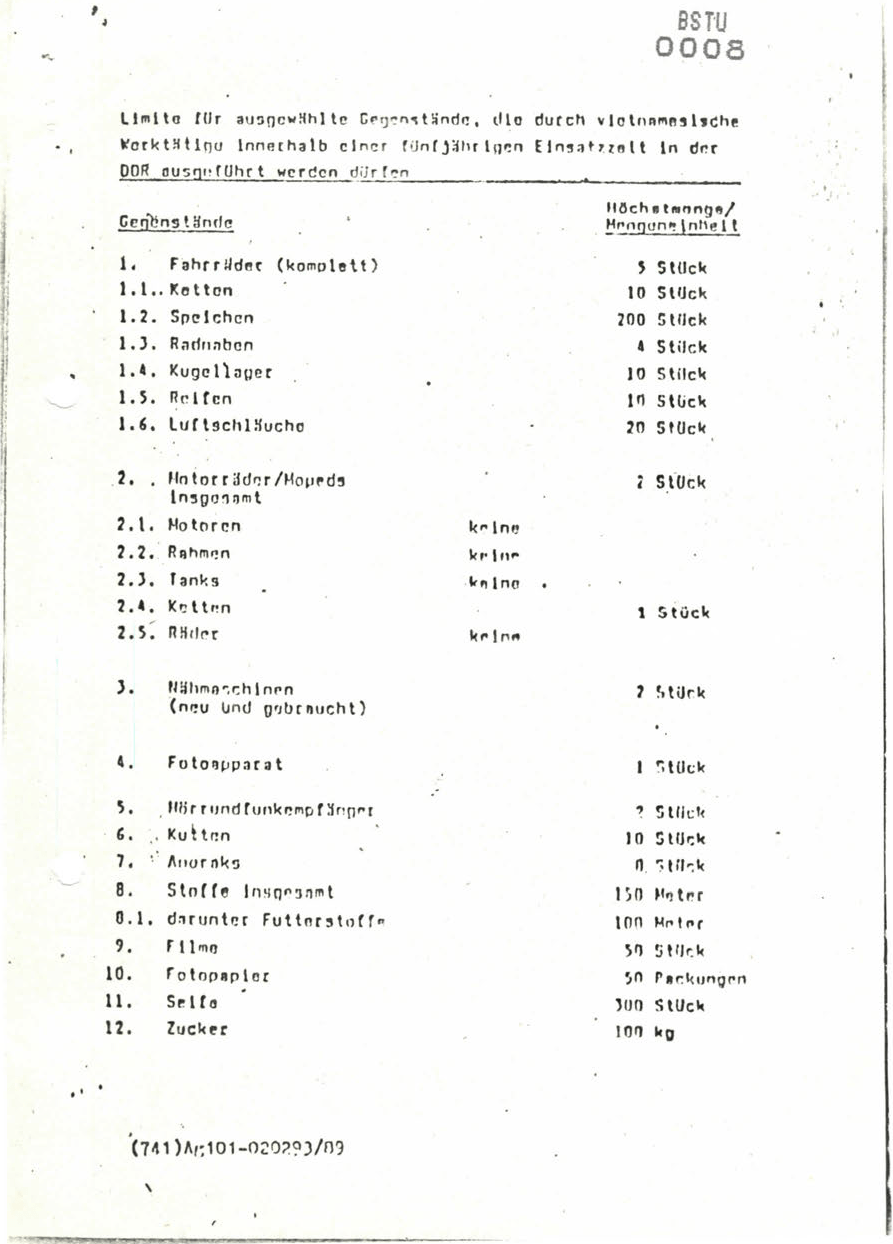
BStU MfS BV Rostock AKG 1123
5. House rules
BArch DQ 3 638 T 1


















